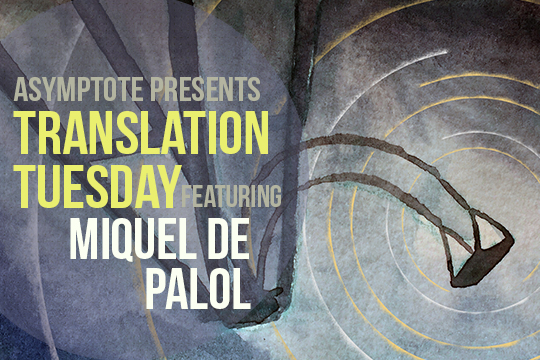Our latest Asymptote Book Club selection, Brice Matthieussent’s Revenge of the Translator, depicts a terrifying scenario for many authors. According to its translator, the main character is “an author’s worst nightmare”: a translator with their own ulterior motives.
In the latest installment of the Book Club interview series, Emma Ramadan (herself one of numerous characters in the multi-layered English translation of Matthieussent’s novel) speaks to Mallory Truckenmiller. Read on to find out more Ramadan’s unique experience translating Revenge of the Translator — a text that offers us a glimpse into “some of our darkest fantasies as translators.”
Follow up this conversation’s insights into the art of translation with our #30issues30days program, celebrating 7 years of Asymptote.
Mallory Truckenmiller (MT): One defining quality of Revenge of the Translator is its translation within a translation structure, with the translator actually entering the plot of the novel. As the English translator, your role adds yet another layer to the work. How did you approach this position? Did you find ways to insert yourself as a new voice or character within your translation?
Emma Ramadan (ER): Because the French novel Vengeance du traducteur is framed as a French translation of a (non-existent) English original titled Translator’s Revenge, creating my own English translation got a bit complicated. I couldn’t use Translator’s Revenge as the title of my translation, and at the end, when the narrator mentions a supposed “American translator” of Vengeance du traducteur currently undertaking the translation of the book into English in their city, that translator had to be me, that city had to be Providence. It had to come full circle and the reader of the English translation had to understand that this was an explicit reference to the book they were currently holding in their hands, a reference to my work, otherwise, the whole conceit falls apart. Which, in turn, adds extra layers: how faithful is this translation I’ve been reading? How much has this book I’m currently holding in my hands about a rogue translator been messed with in turn by its own translator? I had to insert myself literally as a character, and be creative as a translator, to do justice to Matthieussent’s multi-layered work and keep it from veering into total insanity.



